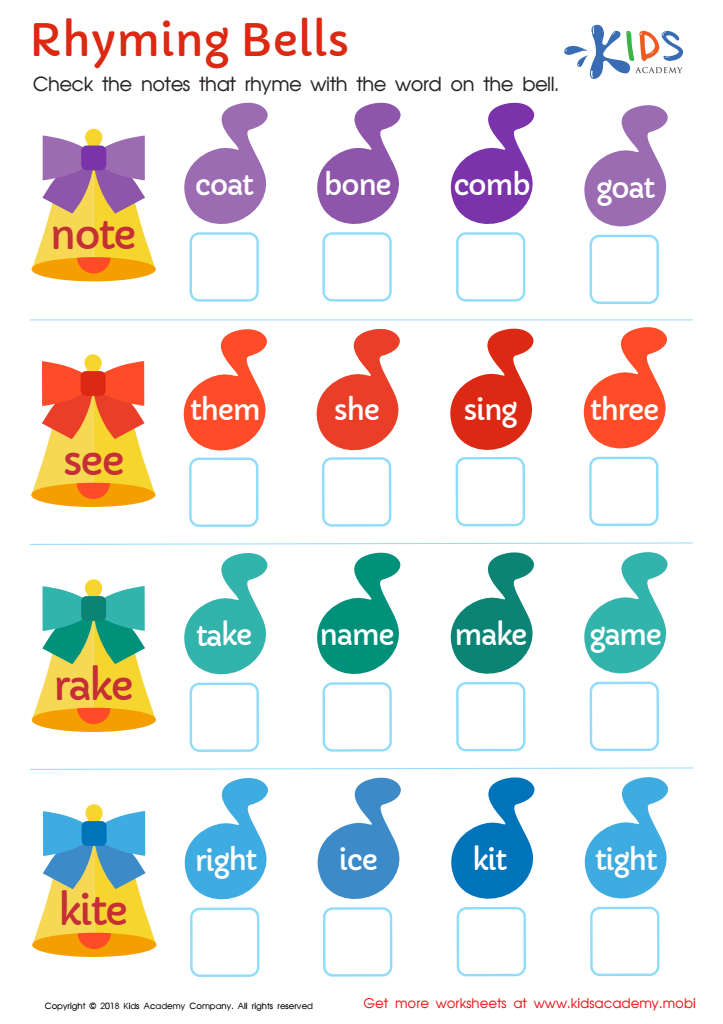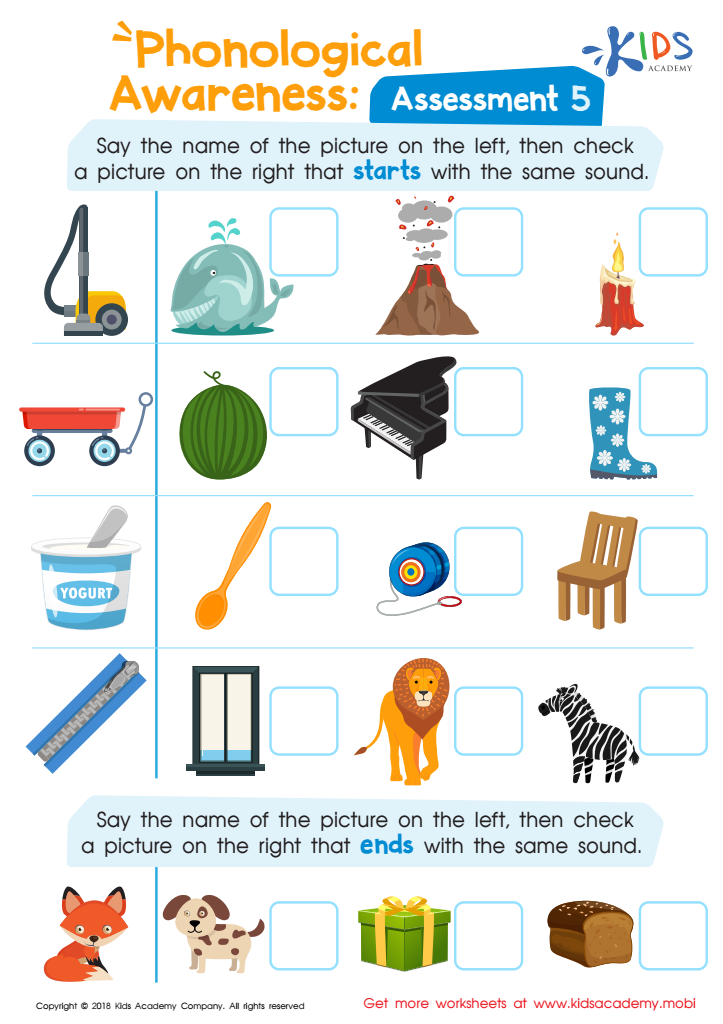Rhyming skills development Phonics Worksheets for Ages 4-7
5 filtered results
-
From - To
Enhance your child's phonics and language skills with our engaging rhyming skills development worksheets designed specifically for ages 4-7. These interactive activities promote phonemic awareness, helping young learners recognize, create, and manipulate rhymes essential for reading proficiency. Each worksheet is thoughtfully crafted to captivate children's attention while reinforcing important literacy concepts in a fun and interactive manner. With vibrant illustrations and age-appropriate content, your child will enjoy discovering the joy of rhymes while improving their vocabulary and pronunciation. Visit our website for easy-to-print worksheets that support your child's learning journey and create a strong foundation for future reading success!


Rhyming Words Rhyming Worksheet


Rhyming Bells Worksheet


First Words: Picture Rhymes Worksheet


Phonological Awareness: Assessment 5 Worksheet
Rhyming skills development is a crucial aspect of phonics that greatly benefits children aged 4-7. During these formative years, children's linguistic abilities are rapidly evolving, and engaging with rhymes helps them make connections between sounds, letters, and words. When parents and teachers prioritize rhyming skills, they enhance children's phonemic awareness, allowing them to distinguish and manipulate sounds in ways that foster reading readiness.
Rhyming activities, such as songs, poems, and games, not only make learning enjoyable but also significantly improve vocabulary and comprehension skills. As children learn to identify and produce rhymes, they become more adept at recognizing patterns in language, which is vital for mastering phonics. This skill not only supports reading development but also writing fluency.
Furthermore, children's engagement with rhymes helps to boost their memory and cognitive abilities, paving the way for better academic performance overall. Parents and teachers should also take into account that early exposure to phonics and rhyming can lead to a lifelong love for reading and learning. Investing in these foundational skills during ages 4-7 sets children on a successful path, equipping them with the tools they need for future literacy challenges.
 Assign to My Students
Assign to My Students




















